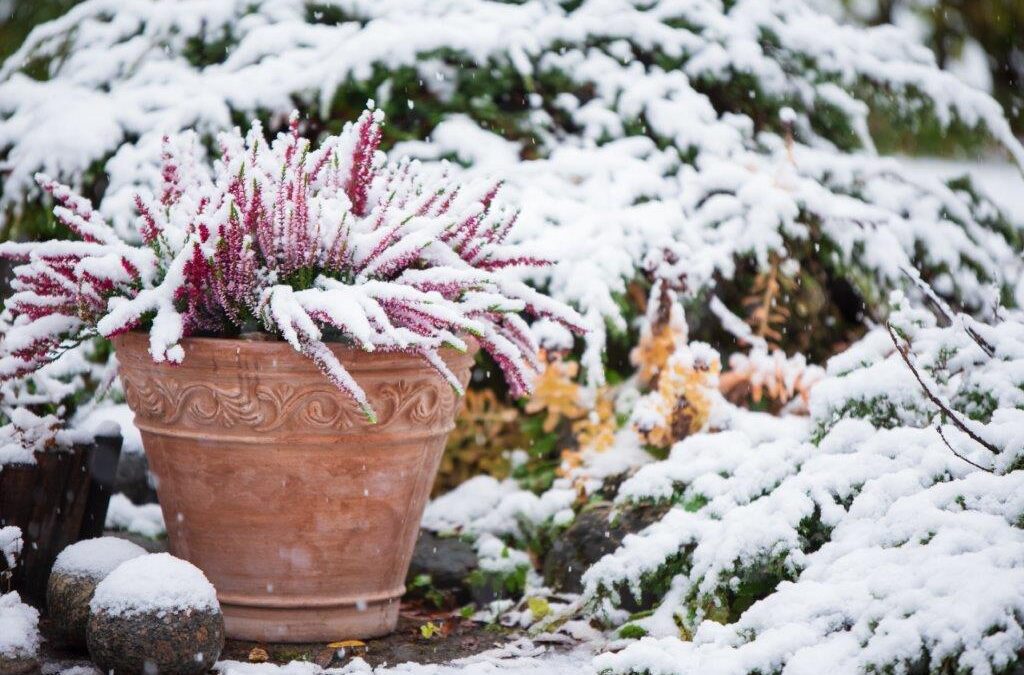Maintaining your flower beds in winter is just as important as maintaining them in spring. Here are a few helpful tips for preparing your flower beds for the winter season.
Clean Up Rot and Weeds
Give your flower beds a thorough cleaning. You’ll be amazed by how much nicer your flower beds will look by sprucing up what you already have.
Withering, older plants aren’t just unhealthy looking – they can also harbor pests, fungi, and diseases that could spread to healthier plants. By removing these, you’ll keep them from infecting the rest of your flower beds so that you can start spring on a good note.
While you’re at it, you should also be weeding. Don’t just move weeds into a compost heap or pile elsewhere in your garden. You should remove them completely, otherwise they run the risk of sprouting again, forcing your plants to fight for the nutrients they need to survive and thrive.
Give Your Flower Beds Fresh Soil
Add soil to your flower beds before the ground freezes. This may sound counterproductive since your plants won’t be growing during winter, but the late fall is actually one of the best times to freshen up your soil. During winter, this new soil, and the amendments you add to it, will have time to break down and enrich your soil. Come spring, your plants will enjoy strong root systems that are ready to sprout fresh, healthy flowers.
Regenerate Your Compost, Mulch & Beauty Bark
Along with fresh soil, you should also be changing out your compost. Material composted in summer is rich and ready to be used to top up garden beds, fertilize lawns, and amend deficient soils. Adding fresh compost will help keep your flower beds insulated during the winter season. At this time, you can also add or refresh mulch and beauty bark to your beds.
Preparing Your Herb Garden for Winter
Herbs’ needs vary greatly during winter. Some can tolerate the cold with little to no help, while others require very specific care. Here is what you should do for some of the most common herbs:
- Sage – doesn’t need any special treatment
- Thyme – doesn’t need any special treatment, though it will die and regrow in spring
- Oregano – can weather the winter, but adding a layer a straw mulch helps
- Chives – bring indoors to a sunny, cool spot. Water and harvest chives throughout the winter
- Parsley – can withstand some cold, but should be covered
- Rosemary – can withstand some cold, but should be potted up and brought indoors
- Basil – needs to be dug up and brought inside during winter
Preparing Perennials for Winter
Wait until the first killing frost before cutting your perennials. When you do, leave them 4 to 6 inches tall. A lot of the energy in the upper plant flows into the root systems where it’s stored for winter. If you cut back beforehand, you’ll run the risk of that energy not getting stored in the roots.
Plant Spring-Flowering Bulbs
Autumn is the best time to plant bulbs, such as tulips, hyacinths, and even garlic! Plant these bulbs at a depth three times their height. For instance, if the bulb you’re planting is one inch, you should plant it three inches down. Once they’re planted, water the soil. The bulbs themselves don’t need to be watered, but watered soil makes it more difficult for animals to dig up.
By following these steps, your flower beds will be well-prepared to endure the winter season.

